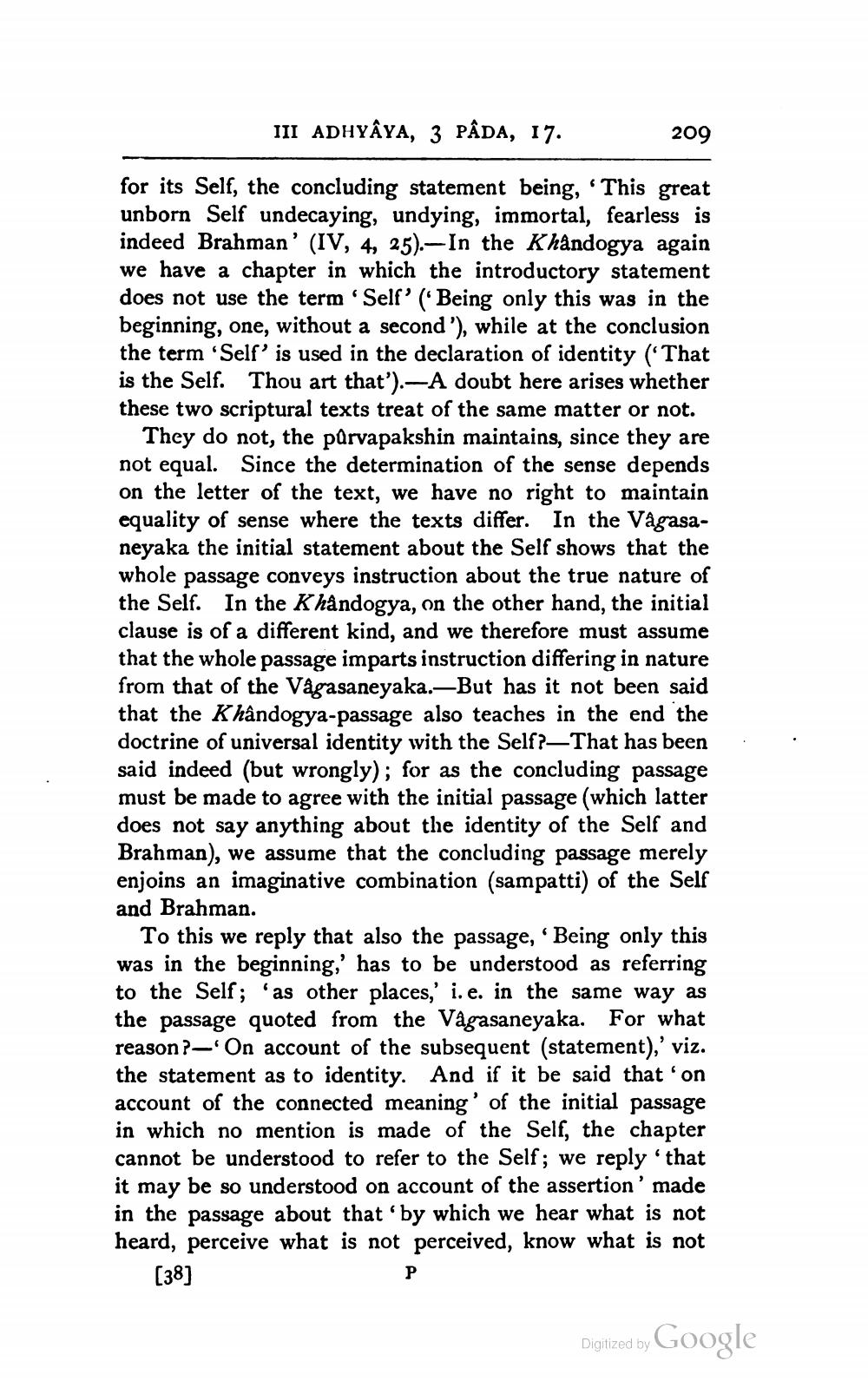________________
III ADHYAYA, 3 PÂDA, 17.
209
for its Self, the concluding statement being, “This great unborn Self undecaying, undying, immortal, fearless is indeed Brahman' (IV, 4, 25).- In the Khandogya again we have a chapter in which the introductory statement does not use the term 'Self' ('Being only this was in the beginning, one, without a second'), while at the conclusion the term 'Self' is used in the declaration of identity (That is the Self. Thou art that').- A doubt here arises whether these two scriptural texts treat of the same matter or not.
They do not, the parvapakshin maintains, since they are not equal. Since the determination of the sense depends on the letter of the text, we have no right to maintain equality of sense where the texts differ. In the Vågasaneyaka the initial statement about the Self shows that the whole passage conveys instruction about the true nature of the Self. In the Khåndogya, on the other hand, the initial clause is of a different kind, and we therefore must assume that the whole passage imparts instruction differing in nature from that of the Vågasaneyaka.—But has it not been said that the Khândogya-passage also teaches in the end the doctrine of universal identity with the Self?—That has been said indeed (but wrongly); for as the concluding passage must be made to agree with the initial passage (which latter does not say anything about the identity of the Self and Brahman), we assume that the concluding passage merely enjoins an imaginative combination (sampatti) of the Self and Brahman.
To this we reply that also the passage, Being only this was in the beginning,' has to be understood as referring to the Self; 'as other places,' i.e. in the same way as the passage quoted from the Vagasaneyaka. For what reason?_' On account of the subsequent statement),' viz. the statement as to identity. And if it be said that on account of the connected meaning of the initial passage in which no mention is made of the Self, the chapter cannot be understood to refer to the Self; we reply that it may be so understood on account of the assertion' made in the passage about that by which we hear what is not heard, perceive what is not perceived, know what is not
[38]
Digitized by
Digized by Google




